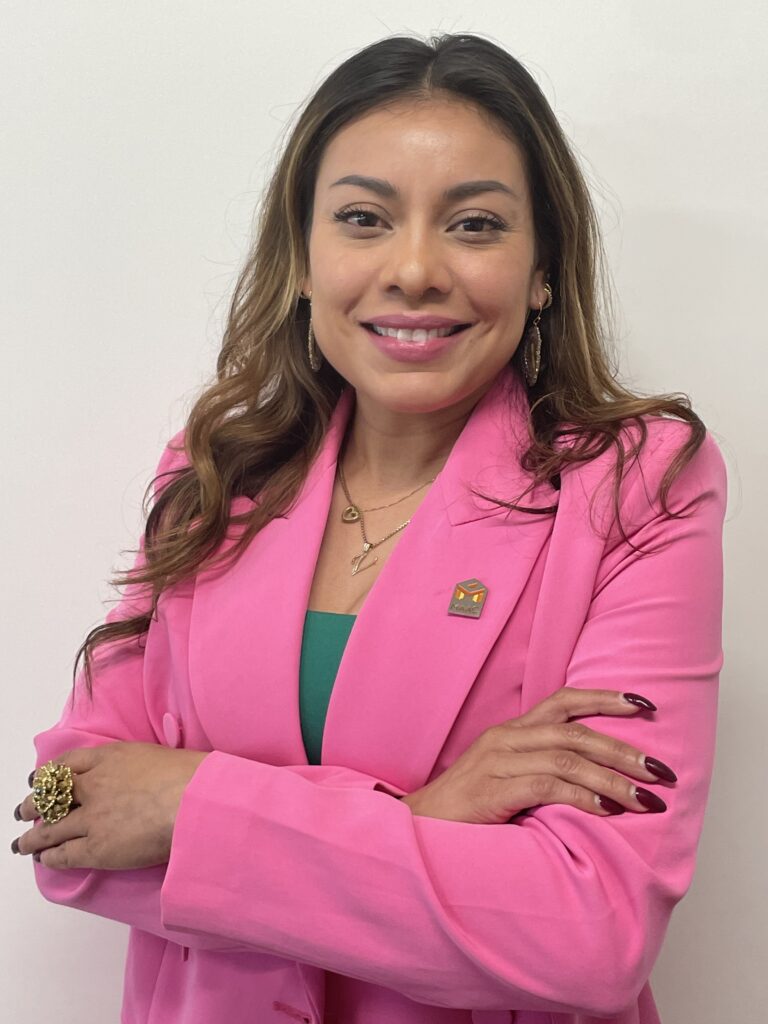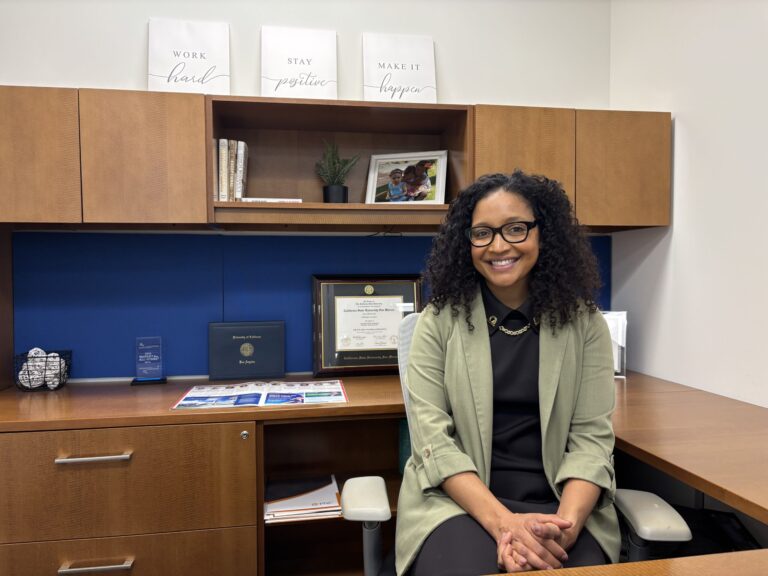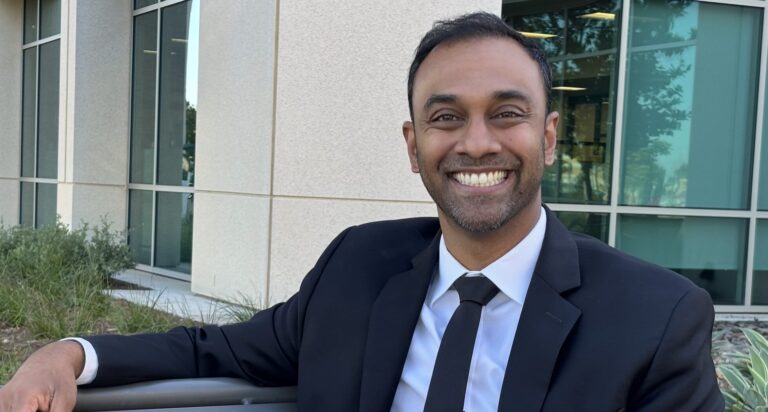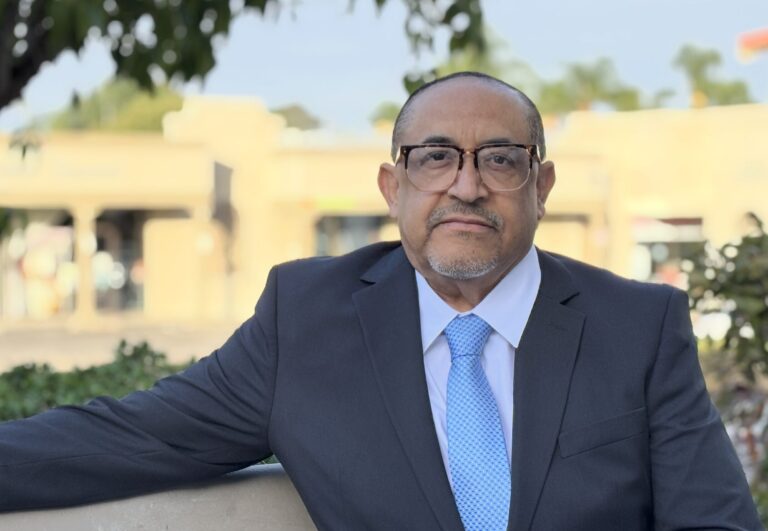Victoria Vazquez’s Outreach Efforts Help Families and Communities Prosper
By Melanie Slone
In 1999, when Victoria Vazquez’s family moved to San Marcos from Tabasco, Mexico, the 10-year-old didn’t speak English, so she had to do fifth grade twice. It was the first of many challenges. “My family and I felt poverty firsthand,” she tells North County Informador.
Today, as Associate Director for Engagement and Economic Mobility at MAAC, she leverages her experience through her work in the nonprofit sector.
Victoria started getting involved with her community as a teen. “I was one of those kids that picked up trash on the weekends. I went to the beach and did clean up…volunteered with the Boys & Girls Club and afterschool programs.”
When graduation came around, despite having been an AVID student in high school, “I really did struggle because I was a first-generation college student. No one in my family had gone before.”
Her dream of attending college was indefinitely put on hold with the 2008 housing market crisis. She had to get a fulltime job, which forced her to drop out in her first semester. “I had to support my family because we couldn’t really afford to pay for college at that time.”
Working at a sporting goods store, she says, “I got to the point where I needed to go back to school…. I just kept thinking to myself, I could be doing something better.”
Six years after dropping out of college, Victoria went back to Palomar, later transitioning to Cal State San Marcos, where she completed a bachelor’s in communication.
She knew she wanted to help others. “I wanted to be able to be more educated to see where else I could be a tool for the community,” she says. In her master’s in Peace and Justice at University of San Diego, she focused on human rights and how systems affect people, learning about “community impact overall and the things we do.”

Community Engagement
Victoria started with MAAC in March 2021, working with a shelter for migrants in San Diego. “We were case managing for unaccompanied minors and connecting them to their family, getting them reunited.”
When that contract ended, Victoria was offered a job at MAAC. “I was working in the community as an outreach manager to push for our Latino community to get vaccinated,” she says, particularly in North County, which had been struggling with low Covid vaccination rates. “It was language barriers, healthcare system barriers, or not understanding what access they had, the Latino community, or the non-English speaking community for that matter,” she explains. Victoria offered support “to local healthcare organizations to boost those numbers.”
She had found her niche, working in outreach directly with the community. “That’s a passion of mine,” she says. “I feel like I picked up where I had left off after high school.”
It was not long before her position at MAAC became fulltime and permanent. In that role, she worked hard to bring resources to participants in the program, “doing that one-on-one connection with our families or even bringing the resources here for the families to access,” she says.
A year and a half later, Victoria applied for her current position and was offered the job. “I don’t have a background in child development,” she says, “but I see that as a strength because I bring in a different scope and a different view.”
Her experience has gifted Victoria with this unique perspective. “I’ve seen myself reflected in a lot of the people that I support and that the team I work with supports…I know I’ve been in that situation.” She says asking for help can sometimes be stigmatizing. “But if we don’t support each other as a community, if we don’t build these pathways for people to move up the economic ladder, then nobody else will.”
Her compassion and talent have made her a driving force at MAAC. “Victoria Vazquez exemplifies dedication and passion,” says MAAC CEO Arnulfo Manriquez. “Her commitment to our community, especially in empowering families to move beyond poverty towards thriving incomes and generational wealth, makes her a valuable asset in North County.”
Victoria has roots on both sides of the border. “You can’t separate those things anymore,” she says. “It’s certainly powerful for me and it’s a tool for me that I can communicate in my native language to people.”
Victoria also works with an organization called Border Kindness. “They go out and do water drop-offs and support day laborers,” she says. They offer comprehensive services that include food, shelter, clothing, medical care, and legal services, according to their website.
Grateful for the support she has received, she notes, “A lot of my successes I’ve not done alone. I’ve done through a community, a support group, friends, family…When somebody moves up a step, it’s not just the individual. It’s the entire community.”
Holistic Services with MAAC
MAAC was launched in 1969 to provide a place where local families in need could find the means to self-sufficiency.
Victoria explains the programs MAAC now provides. “Child Development is our biggest program. We have education through our child development and our charter school.” MAAC also offers several programs for economic development, health & well-being, housing, and more. “And we play a big role in leadership and advocacy for our community,” she says.
Victoria notes that families often don’t have childcare, so MAAC’s programs are their only option if they need to work. “Our goal is to impact holistically the growth of the family. Head Start is a family development program,” she explains.
When the MAAC office in Vista reopened after Covid, one of Manriquez’s goals was realized, an onsite childcare center. “The CEO really wanted to open up a childcare center right where the offices were, onsite, to reflect the work that we do out in the community,” says Victoria. The Family Childcare Center (FCC) is downstairs, and the offices are upstairs in the spacious building on Vale Terrace Drive.
The center is continuing to grow, offering a community meeting room, a transportation team with bus routes that pick up children with accessibility issues, and offices for the different departments.
Victoria says MAAC is there to ask, “how do we move people from the current status of poverty and low access to that next step up? Can we set up a goal for somebody to become a homeowner, …an electric vehicle owner? Can we create a support system for somebody who’s living paycheck to paycheck, a budget to get them out of that cycle of poverty?”
MAAC recently launched the Apprenticeship Program for Early Childhood Education, the first of its kind in Southern California and the second in the state, seeking to increase the workforce of Head Start and Early Head Start teachers. “We’re accepting applications for those interested in going into early childhood education,” she says. “They don’t have to have any background or experience. We pay for the education, and we provide on-the-job training.”
Victoria is proud to be supporting teachers. “I think teachers in general are not seen as professionals in the field. That starts with early childhood and even into high school. And their pay reflects it.” The new program is a strategic effort to increase their salary.
Women in Social Services
Victoria notes that in the nonprofit social services field, “it’s 90% women.”
She says there is a belief that “women have the time for this, and women have the capabilities because we’re mothers and we’re sisters, and we’re abuelas and tías.” These ideas can create some unrealistic expectations, “because we are such achievers and doers, and we’ve done so well throughout generationally, there’s now this expectation that we’re able to manage everything all at once.”
It’s difficult for social service employees to separate their work from how they see themselves overall, she says. “It almost becomes who you are. It becomes a part of your personality and your reality, and you’re just constantly thinking about it.” These characteristics create a “big space that’s navigated by women.”
Women tend to be seen as “nurturers and caregivers,” she adds, so their response to someone in need is, “What can I do to support? What can my organization do to support?” Victoria says she acts as a bridge in the community between families and services, speaking out when she sees someone in need. “My response is, I need to care about this because who is going to care if I don’t?”
MAAC (Metropolitan Area Advisory Committee on Anti-Poverty)
Child Development, Affordable housing, AmeriCorps, Driving under the Influence Education, MAAC Community Charter School, Recovery Homes, STEP Centers, Weatherization & Energy Assistance
619-426-3595




